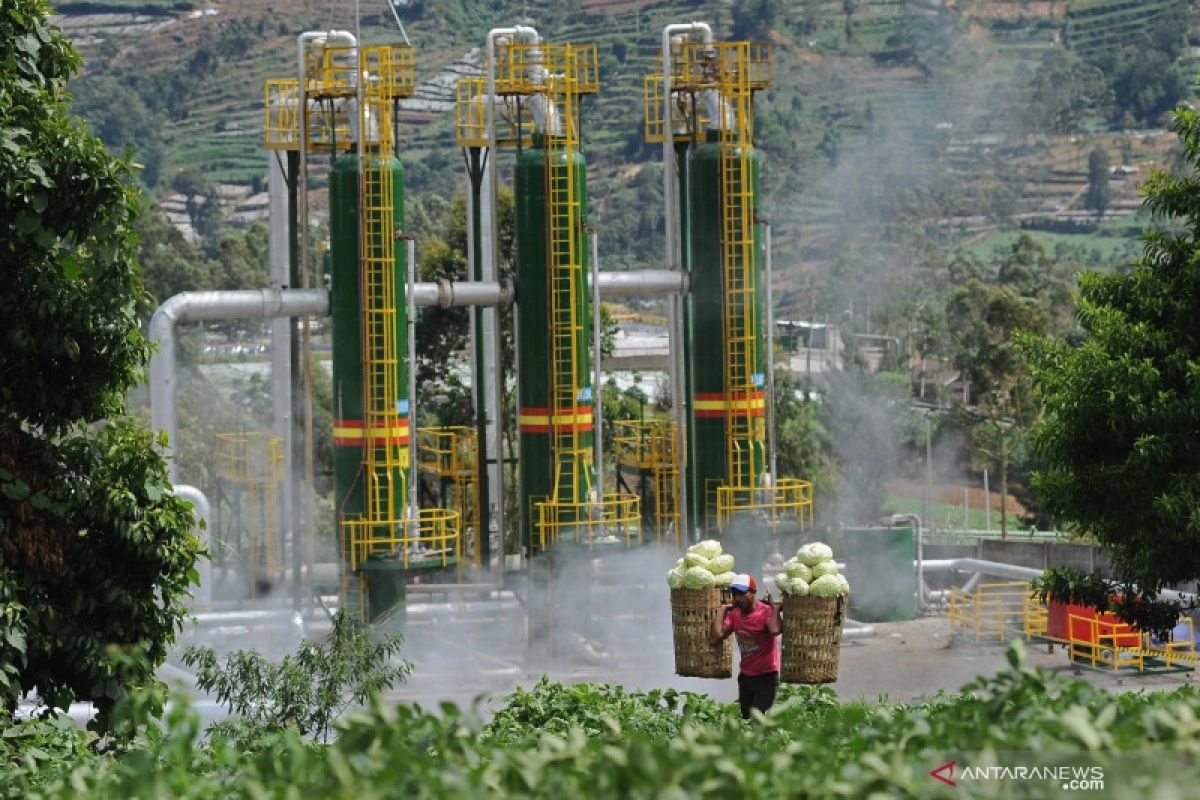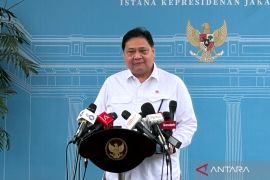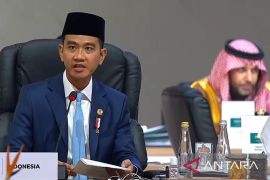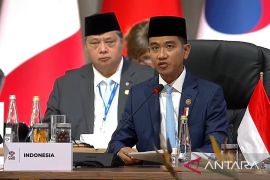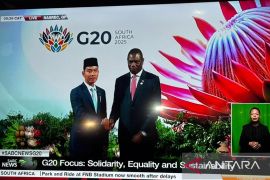To this end, Indonesia raised the issue of energy transition as one of its three priorities while holding the G20 presidency this year.
During a virtual discussion in January this year, Indonesian Vice Minister of Foreign Affairs Mahendra Siregar stated that Indonesia had prioritized the issue of energy transition during the G20 presidency since the efforts to support energy transition to green energy are deemed essential in times like this.
Mahendra also explained that selection of the issue of energy transition to green energy in Indonesia's G20 presidency reflects its views and perspectives as a developing and archipelagic nation majorly impacted by climate change.
The current issue of climate change is indeed one of the main problems that requires increased global coordination in its handling in addition to addressing other issues, such as global health and economic recovery, according to Yose Rizal Damuri, an economist from the Center for Strategic and International Studies (CSIS).
Related news: G20 should boost transition to green energy: C20 Co-chair
Related news: Jokowi promotes Pagar Alam to be Indonesia's first zero-emission city
Damuri explained that the group of 20 of the world's largest economies (G20) could offer further impetus in the global efforts to address climate change despite there already being a separate international forum that specifically discusses the issue of climate change.
In fact, almost all G20 countries, including Russia, Saudi Arabia, and Indonesia, have made a flurry of net-zero commitments. Argentina is currently the only country in the grouping without a net-zero emissions pledge.
"The G20 can be a further impetus for efforts to tackle the problem of climate change," he affirmed.
Moreover, through its presidency in the forum, Indonesia has a good opportunity, as the first developing country, to lead a group of countries that has the influence to shape economic and social policies globally.
To this end, the discussion of climate change issues, including the green energy transition, at the G20 will certainly be able to explore more inputs about interests that come from developing countries, Damuri remarked.
It is also in line with Indonesia's keenness expressed on several earlier occasions. Indonesia will further echo the interests of developing countries during its presidency at the G20.
"I think this is very important since the views of developing countries are somewhat different from what has been promoted by developed countries, especially the European Union, which is indeed at the forefront of these issues (climate change and energy transition). Hence, Indonesia must also be able to raise the narrative that comes from developing countries," Damuri remarked.
Hence, he also stressed that it is crucial for Indonesia to voice the aspirations of developing countries regarding the energy transition that is one of the priorities of Indonesia's G20 presidency this year.
In this regard, Indonesia has the opportunity to draw international support, especially from developed countries, to help prepare energy transition programs through capital support and technology transfer for developing countries.
Thus, Indonesia can also demonstrate to the world its full support for the global energy transition.
Progress in energy transition
In terms of energy transition towards green, new and renewable energy (NRE), Indonesia has made some progress, one of which was when the Indonesian government at the COP26 agreed to elements of the Global Coal to Clean Power Transition Statement.
Indonesian Finance Minister Sri Mulyani Indrawati highlighted the likelihood of a phase-out of coal by 2040, with the right international support.
At the COP 26, Indonesia further committed to phasing down unabated coal power and phasing out inefficient fossil fuel subsidies.
According to the Indonesia Energy Transition Outlook (IETO) 2022 report published by a think-tank in the field of energy and the environment, the Institute for Essential Services Reform (IESR), Indonesia made a breakthrough in the power sector when it joined the Philippines and Vietnam in the Asian Development Bank's Energy Transition Mechanism (ETM).
To date, at least 9.2 gigawatts (GW) of coal-fired power plants (CFPPs) in Indonesia have been identified for early retirement under the ETM scheme. Pilot projects at three CFPPs, with a total capacity of 1.77 GW, are expected to commence in the 2022-2023 period.
Moreover, based on the report, to date, 13 banks are joining the Indonesia Sustainable Finance Initiative (IKBI). By the first quarter of 2021, some four banks, which are members of IKBI, have disbursed a total of Rp30 trillion (US$200 million) to renewable projects.
An encouraging sign of progress was also seen in Indonesia's policy and regulatory realm where key policies and regulations were updated and improved, such as the nationally determined contribution for reducing greenhouse gas emissions (NDC), Indonesia's Long-Term Strategy for Low Carbon and Climate Resilience (LTS-LCCR), as well as Indonesia's electricity supply business plan (RUPTL) for the 2021-2030 period and Regulation No. 26 of 2021 on rooftop solar PV.
Furthermore, the IESR stated that participation of the Indonesian private sector in climate action has increased, with around six local Indonesian companies having a net-zero target. Four out of the six companies that have set such a target were fossil fuel companies, with two of them being coal mining companies.
According to IESR, such a positive trend in Indonesia symbolizes a new era where fossil fuel companies start transitioning away from fossil fuels and diversifying their businesses to clean technologies.
Overall, the think-tank institution acknowledged an improvement in the readiness of the Indonesian power sector to transition away from fossil fuels and towards renewable energy, albeit some aspects still needed major refinement.
The think-tank also estimated that the year 2022 promises better prospects for the energy transition in Indonesia, with the government setting up new and stronger commitments for climate action and energy transition in 2021.
With all the progress in terms of the energy transition efforts in the country as well as endeavors to voice aspirations from developing countries, Indonesia's G20 presidency is expected to assist in accelerating global efforts for energy transition towards green and sustainable energy.
Related news: President Widodo expects B20 to support energy transition acceleration
Related news: Creating green energy sovereignty through the G20 Forum
Editor: Sri Haryati
Copyright © ANTARA 2022
